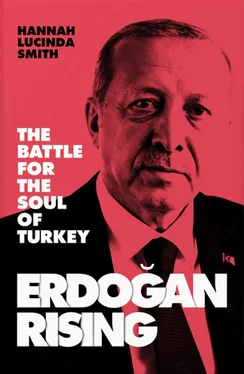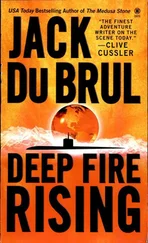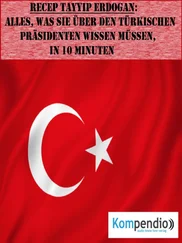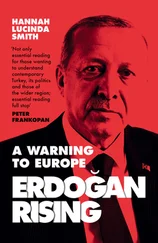Five days after Mehmet was discharged, the sultanate was dissolved. His cousin, Abdulmecid, was appointed caliph – head of the world’s Muslims – but his tenure was similarly short. Less than two years later, the caliphate was also abolished. The 600-year-old Ottoman Empire was over.
Mustafa Kemal had led a movement that saved Turkish pride and reclaimed great swaths of its territories. From the ruins of the Ottoman Empire he established a modern republic: in 1923 the Treaty of Lausanne was signed, recognising Turkey as a sovereign state. For most men, this might have been enough. But it was here that Mustafa Kemal’s most remarkable work began. As the first president of the republic, from its founding in 1923 to his death in 1938, he set himself an enormous task: to pick up his people, shake out their old habits and mindsets, and reshape them as citizens for the twentieth century. Among his more famous reforms was to scrap the Ottoman alphabet, written in the same script as Arabic, and replace this with Latin letters. He introduced secularism into the constitution and banished God to the private sphere, and had everyone choose a surname in the Western tradition, leading to a plethora of colourful monikers in present-day Turkey. It is not unusual to meet a Mr ‘Oztürk’ (‘pure Turk’), ‘Yıldırıım’ (‘lightning’) or ‘Imamoğlu’ (‘son of an imam’). Mustafa Kemal’s own choice, ‘Atatürk’, means ‘Father of the Turks’. And he advocated passionately for the equal rights of women.
For the people who wave his flag, Atatürk is the man who saved Turkey from the fate of some of its unfortunate neighbours. ‘If it wasn’t for Atatürk, we would be like the Arabs!’ is a common refrain. If that sounds bigoted to a Westerner’s ears, then some time spent in the Middle East might bring you round. Travelling and working as a woman in the Arab world can be infuriating at best, scary at worst. I have been heckled, grabbed, groped, patronised and scorned during my time working in Arab countries – simply because I am a woman –though I would like to pay tribute here to my scores of male colleagues and friends in that part of the world who do not fit the stereotype, and who have often saved me from those situations. In Turkey, women seem simply to sigh inwardly at embarrassingly clichéd chat-up lines, and learn how to deal with machismo displays of jealousy and the constantly hungry stares from men. What they don’t sigh at but have to bear is the appallingly high, and apparently rising, rate of domestic violence and killings of women at the hands of their male relatives. Yet in the secular neighbourhoods of Turkey’s western cities at least, women can live almost as freely as they do in the West. I can go running, Lycra-clad, in the morning, and hit bars and clubs wearing mini-dresses at night in Istanbul. Atatürk’s admirers would credit that to him – whether that is true or not.
Atatürk’s fan club is secular (at least politically if not always privately), relatively wealthy, educated, well-coiffed and decidedly less spiky to deal with. In short, they are almost the mirror image of the Turks who turn out for Erdoğan. During Kılıçdaroğlu’s long walk, a joke goes around that his supporters who can’t be bothered to walk alongside him are sending their drivers instead. The people who turn out to what has become known as ‘the justice rally’ look like professors, writers and engineers. There are large groups of middle-aged women who arrive on chartered coaches from faraway cities, cackling between themselves at crude jokes as they walk to the parade ground. I watch sweet old retired couples in matching JUSTICE T-shirts walking hand in hand along the corniche. These people belong to the same Turkey as the old ladies with fur coats and small dogs who live in my 1960s apartment block, clinging to their crystal tumblers of whisky, their cigarettes and all the former glamour from those heady days. There is no horror-show dental work on display here.
‘Aaaaaah, we’re among the beautiful people!’ says Yusuf, a Turkish photographer who is firmly of this world, even though it pains him to admit it. When I really want to needle him I call him a ‘White Turk’, the lazy label for this half of the country. It refers to the elites, the secularists, ‘those people who sit by the Bosphorus sipping on their whiskies’, as one of Erdoğan’s staunchest allies once put it, with a visceral sneer of disgust. The president is proud to represent the other half of Turkey – the poor, the religious, the marginalised. ‘Your brother Tayyip is a Black Turk!’ he once roared in a speech to his faithful. Whenever I call Yusuf a White Turk, he rolls his eyes and huffs a little. But he never denies it.
The walk down the corniche to the Maltepe parade ground, where Kılıçdaroğlu will take the stage, has the air of a genteel Sunday stroll. The white-clad masses lick ice creams and pause for tea in the kitsch waterside cafés. There is a happy, easy hum of conversation – I pick up snippets of holiday stories, and of updates on how the children are doing at university. There is less venom here than at Erdoğan’s rallies – but also less sense of drive and direction. These people lost control of Turkey fifteen years ago, but they still wear the easy nonchalance of power. Meanwhile Erdoğan’s supporters are still full of the scrappy aggression of the underdog. Old habits are hard to give up.
Kılıçdaroğlu, the bureaucratic grey man, has always made an easy target for ridicule. During his rallies Erdoğan plays videos showing the state of Turkey’s hospitals in the 1990s, when Kılıçdaroğlu was head of the state health department. Admittedly they were terrible back then, full of filthy wards and mind-numbingly long queues. The crowd boos whenever Kılıçdaroğlu’s face pops up on the screen. And as Kılıçdaroğlu begins his walk, Prime Minister Binali Yıldırım – a Erdoğan loyalist to the bone – mocks him.
‘Why don’t you use our high-speed trains?’ he baits, highlighting the sleek new rail link, one of the government’s vote-winning projects.
But by the time Kılıçdaroğlu nears Istanbul Erdoğan is spooked. As thousands of Justice March supporters file past the neo-Soviet-style billboards for the upcoming coup commemorations it becomes embarrassing for Erdoğan: this inadequate rival, stealing his thunder? And so he starts accusing him of tacitly supporting both Gülen, the alleged ringleader of the coup attempt, and the PKK – a known terrorist organisation – through this endeavour.
‘Politics in the parliament has become impossible, so I’m taking it onto the streets. They can’t cope with my free spirit,’ a suntanned and fit-looking Kılıçdaroğlu tells me, back in his Ankara office five days after he has finished the march. With so few trusting the ballot box, these rally turnouts have become the new battleground.
Each time the politicians call their legions to the streets, fierce debate breaks out over the numbers. The CHP claims two million attended Kılıçdaroğlu’s Justice Rally; the office of the Istanbul governor (a government appointee) counters, saying the real figure was 175,000.
Meanwhile, the government’s claims for its own rallies – generally held in the purpose-built Yenikapı parade ground on the European side of Istanbul – always stretch into the millions. At the post-coup ‘Unity Rally’, they claim five million. At a pre-referendum campaign meeting, despite the large gaps in the crowd, they say one million. When I write in my report for The Times that the figure appears to have been inflated, pro-government journalists howl in protest. One accuses me of being a Zionist trying to destroy Erdoğan. The headline in the rabidly loyal newspaper Sabah screams that ‘millions’ turned out on the bridge for the coup anniversary. But even the Sabah journalist loses faith by the first paragraph, revising the figures down to ‘hundreds of thousands’.
Читать дальше












